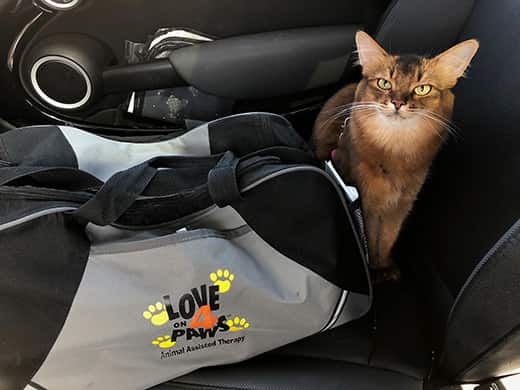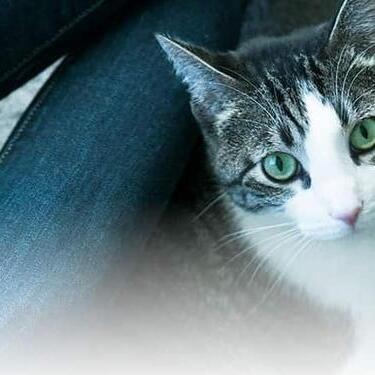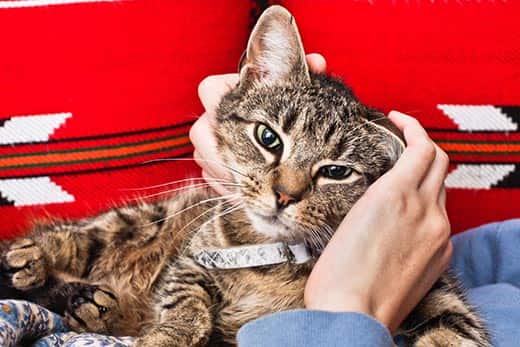
-
Find the right food for your pet
Take this quiz to see which food may be the best for your furry friend.
Find the right food for your pet
Take this quiz to see which food may be the best for your furry friend.
Featured products
 Small & Mini Savory Stew with Chicken & Vegetables Dog Food
Small & Mini Savory Stew with Chicken & Vegetables Dog FoodA delicious complement to the nutrition of Science Diet Small & Mini 7+ dog food
Shop Now Adult 7+ Perfect Digestion Chicken, Whole Oats & Brown Rice Recipe Dog Food
Adult 7+ Perfect Digestion Chicken, Whole Oats & Brown Rice Recipe Dog FoodScience Diet's breakthrough nutrition supports ultimate digestive well-being & healthy microbiome for dogs age 7+
Shop Now Adult Healthy Cuisine Roasted Chicken, Carrots & Spinach Stew Dog Food
Adult Healthy Cuisine Roasted Chicken, Carrots & Spinach Stew Dog FoodDelicious roasted chicken paired with tender vegetables in a succulent stew
Shop NowFeatured products
 Adult 7+ Tender Tuna Dinner Cat Food
Adult 7+ Tender Tuna Dinner Cat FoodWith delicious chunks in a decadent gravy
Shop Now Adult Savory Entrée Can Variety Pack Cat Food
Adult Savory Entrée Can Variety Pack Cat FoodPrecisely balanced nutrition with the delicious taste of savory minced chicken to help fuel the energy needs of cats during the prime of their life
Shop Now Adult 7+ Senior Vitality Chicken & Vegetable Stew Cat Food
Adult 7+ Senior Vitality Chicken & Vegetable Stew Cat FoodImproves Everyday Ability to Get Up & Go
Shop Now -
Dog
- Dog Tips & Articles
-
Health Category
- Weight
- Food & Environmental Sensitivities
- Urinary
- Digestive
- Joint
- Kidney
-
Life Stage
- Puppy Nutrition
- Adult Nutrition
- Senior Nutrition
Cat
- Cat Tips & Articles
-
Health Category
- Weight
- Skin & Food Sensitivities
- Urinary
- Digestive
- Kidney
-
Life Stage
- Kitten Nutrition
- Adult Nutrition
Featured articles
 Do Dogs and Cats have Belly Buttons?
Do Dogs and Cats have Belly Buttons?Learn whether cats & dogs have belly buttons like humans, what the function is, and if there are any health concerns associated with it.
Read More Does My Pet Hate Me?
Does My Pet Hate Me?Learn tips for bonding with your pet if you've ever thought, 'My dog doesn't like me, or 'Why do I have a standoffish cat?'
Read More Why Are Dogs and Cats So Cute?
Why Are Dogs and Cats So Cute?If waggy puppy dog tails and furry kitten yawns make you swoon, you're not alone. Why are cats so cute? And, dogs too! Let's find out!
Read More -


You've likely seen service dogs out and about assisting their pet parents, whether as guide dogs, diabetic or epileptic alert dogs, or emotional support dogs. But what about service cats? Cats are increasingly being sought out to help people in need as well.
Emotional support cats and therapy cats provide comfort to their pet parents and others in need of emotional and mental health support. Cats can provide a gentle and calming presence to people struggling with anything from loneliness or stress to depression, chronic anxiety or PTSD.
Is There Such a Thing as a Service Cat?
The U.S. Department of Justice doesn't currently recognize cats as service animals. However, some people refer to cats trained to perform assistive tasks (alerting their human of a medical emergency, for example) as "service cats" — they just don't have the same privileges as animals legally recognized as service animals, such as accompanying their pet parent into a store.
While cats aren't technically service animals, emotional support cats and therapy cats provide an important service to their pet parents and others.
What Is an Emotional Support Cat?
Emotional support cats are companion animals that comfort pet parents living with conditions such as anxiety and depression. A cat doesn't need to undergo specific training to be an emotional support animal, notes Petful — you just need to get a prescription letter from your doctor.
Emotional support animals have some legal rights, including free flights and the ability to live in residences with no-pets policies. But unlike service animals, they aren't allowed in most establishments, so your furry friend can't join you for a cappuccino unless the café permits it. Because laws vary state to state and globally, always research the locations you're traveling to with your emotional support cat to verify that you may do so legally.
What Is a Therapy Cat?
Therapy cats are also used to comfort people living with mental health issues, but they differ from emotional support cats in that they're trained and certified by professionals. Another difference is that therapy cats, while typically handled by their pet parents, tend to provide service to the larger community.


Tasty Tips

One Therapy Cat's Journey
According to author Janiss Garza, president of FitCat Publishing, cats "are actually perfect therapy animals — they're small enough to lie on the bed with patients and cuddle. They purr, which is a very soothing, healing sort of thing. They're soft to the touch. And they're more affectionate than given credit for."
Garza knows firsthand how effective therapy cats can be. She's the pet parent of Summer, an award-winning Somali, who she's been training since Summer was a 5-month-old kitten. In 2016, the pair began working as a team, visiting hospitals, nursing homes, schools, and offices. Garza documents Summer's adventures from a cat's perspective on her website, Sparkle Cat.
Is Your Cat Ready?
If you're interested in pursuing therapy certification for your cat, contact a reputable organization, such as Pet Partners, for specific details. No one breed makes a better therapy cat than another — what matters most is the specific cat's temperament and socialization. Garza adds that a therapy cat should be comfortable wearing a leash and/or harness and should be friendly to strangers, even in unfamiliar and noisy settings.
Garza documents Summer's adventures from a cat's eye perspective on her website, Sparkle Cat, written from the cat's eye point of view. "I've also used the blog to show that cats are capable of much more than people assume."


Christine O'Brien is a writer, mom, and long-time cat parent whose two Russian Blues rule the house. Her work also appears in Care.com, What to Expect, and Fit Pregnancy, where she writes about pets, pregnancy, and family life. Find and follow her on Instagram and Twitter @brovelliobrien.
Related products

Improves Everyday Ability to Get Up & Go

Supports energy level and beautiful fur in mature cats

Precisely balanced nutrition with the delicious taste of savory minced chicken to help fuel the energy needs of cats during the prime of their life

With delicious chunks in a decadent gravy
Related articles

Brushing your cat's teeth is just as important as brushing your own. Learn signs or oral health problems in your cat and how to avoid them.

Discover which cat toys games your feline friend might like, and how they are great sources of exercise. Explore our library of articles to learn more.

Discover how to identify cat sensitive skin and what you can do to help your cat thrive from head to paw.

Discover the benefits of Hill's line of kitten foods and how they provide complete and balance nutrition for growing kittens.

Put your cat on a diet without them knowing
Our low calorie formula helps you control your cat's weight. It's packed with high-quality protein for building lean muscles, and made with purposeful ingredients for a flavorful, nutritious meal. Clinically proven antioxidants, Vitamin C+E, help promote a healthy immune system.
Put your cat on a diet without them knowing
Our low calorie formula helps you control your cat's weight. It's packed with high-quality protein for building lean muscles, and made with purposeful ingredients for a flavorful, nutritious meal. Clinically proven antioxidants, Vitamin C+E, help promote a healthy immune system.


